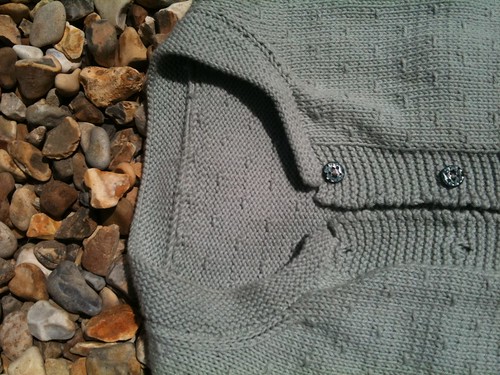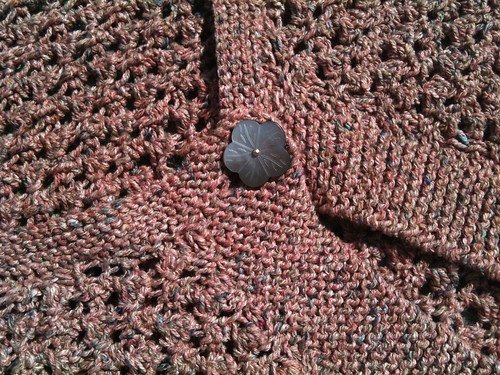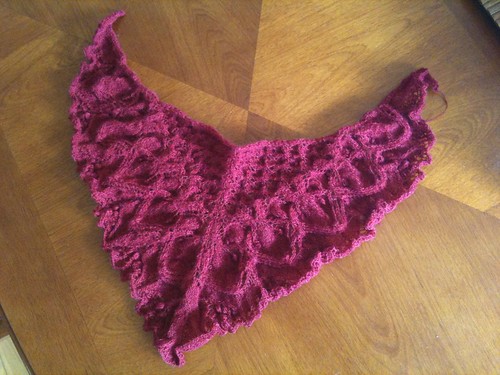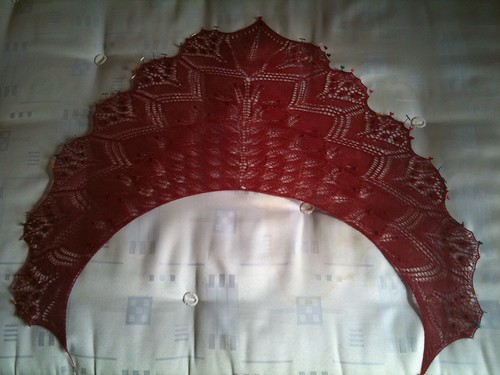Before going with the family to
Lanzarote, I have looked in advance for whereabouts of yarn shops and could not find any. Then when reading about this sleepy volcanic island I discovered an unusual cultivation-cochineal Beetles ! A year ago I bought couple of books regarding natural dyes and remembered reading about the source that gives the best crimson red or carmine dyes ; its derived from
carmic acid produced by scale insects such as the cochineal beetle. Here is a photo of some of the shades achieved on woven fabrics.

I read a bit about the history and it is very interesting.
Apparently the
Aztecs used it as a war paints and when the
Spanish came across cochineal in 16
th century they shipped it back to Europe and there it created a sensation. The red it produced was brighter, deeper and longer lasting than anything anyone had ever seen. It was used on the cardinal gowns, paints, cosmetics .. The
Spanish guarded the secret of cochineal cultivation and it was as expensive as gold. The
Spanish discovered climate in the Canary islands was perfect for the beetles.
I drove with my family to
Guatisa and Mala where there are numerous cacti fields.

The white spots on the cacti wide leaves are the tell tale signs of the beetles. Here is a close up;

I manually removed the beetles from the leaves (and got pricked!). The beetles are fat and full with the red juice they suck from the
tunera cacti. You then leave them to dry and then grind them to a red powder. The dry powder then should be filtered in hot water and I was told it is best to use those white tissue coffee filters. You should then soak the undyed yarn or fabric in it for about 25 minutes. If using acid such as vinegar or lemon juice you will get variation in the reds. I bought a fare amount of the beetles and intend to experiment.
By the way the '
jardin del cactus' in Lanzarote sell them ti tourists 2 euros for about 12-15 dry beetles. not bad!
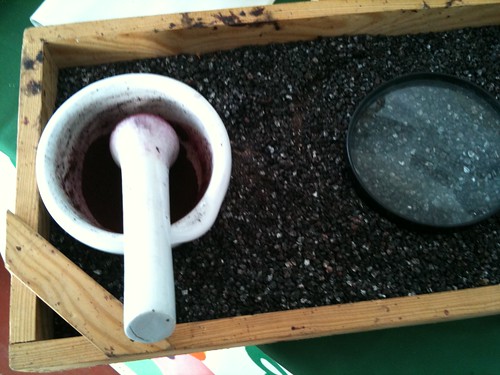
These days many companies prefer organic dyes to chemical alternatives so the cochineal market is on its way up. Did you know that the Italian drink Campari contain cochineal ??





































